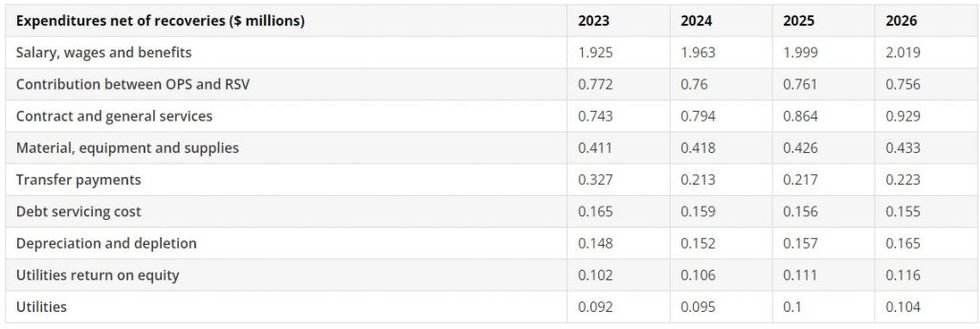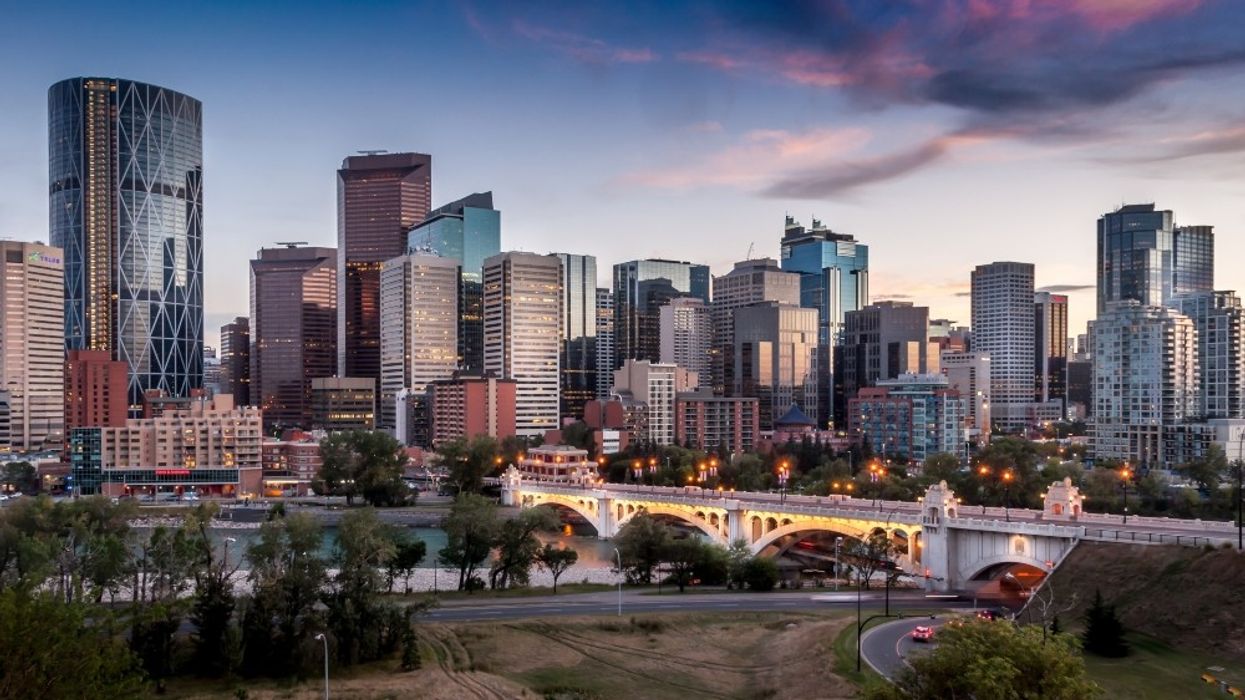On Tuesday, the City of Calgary announced their proposed budget plan for 2023 to 2026, which included -- among other things -- an increased property tax, proving Benjamin Franklin wise in saying that there's nothing in this world that's certain except death and taxes.
The proposed plan would see property taxes increased by 4.4% in 2023, 3.4% in 2024, 3.8% in 2025, and 3.3% in 2026, for an average increase of 3.7% annually. In Calgary, 65% of property tax revenue goes towards municipal services, while the remaining 35% goes towards the provincial government.
The City of Calgary said it's expecting its annual operating budget to reach $4.9B by 2026 and attributed the increased property tax to the need to "align with estimated total target revenues to afford estimated total expenditures" -- "balance," in other words.
The City's operating budget in 2022 is $4.58B. The proposed plan would see the budget increased to $4.69B next year, $4.66B in 2024, $4.79B in 2025, and then $4.90B in 2026, for an average increase of 1.7% annually.


"Aligned with Council’s guidance to keep ongoing expenses in line with inflation plus population growth to help maintain affordability for Calgarians, the City’s proposed total annual operating budget will reach $4.9B by 2026 and invest a total of $10.2B in capital infrastructure that starts or continues in this cycle," the City said in a press release announcing the proposed budget plan.
That $10.2B would include the following operating investments:
- $41M (ongoing) to improve mobility through improved transit service levels, expanded initiatives like On Demand and eScooters, and improved traffic safety;
- $69M (ongoing) to improve public safety by supporting community service provider partnerships, increasing staffing and technology and reinstating a medical response unit;
- $11M (ongoing) to service the expanding system of parks and open spaces system;
- $9M (ongoing) to support economic development and tourism by delivering convention centre services, producing cultural attractions and providing services for entrepreneurs and innovators;
- $19M (ongoing) and $159M (one-time) to preserve heritage assets, provide user- and business-friendly planning policies and deliver programs to revitalize downtown;
- $3.8M (ongoing) and $44M (one-time) to set the foundation for work required to achieve 2050 climate targets.
And also the following capital investments:
- $559M for public transit to improve comfort and reliability, reducing maintenance and fuel costs;
- $76M in public safety, providing effective, reliable emergency response, plus critical infrastructure upgrades in 911
- $47M in recreation, supporting active living, and improving accessibility and inclusivity;
- $153M in affordable housing to keep families and individuals housed, fostering safe, accessible, inclusive housing;
- $170M for downtown and main streets, improving the public realm, attracting investment, improving quality of life;
- $42M in reducing greenhouse gas emissions, mitigating climate risks, and preparing for the low carbon energy transition.
The City points to examples of previous investments currently in progress, such as the Green Line expansion of the City's Light Rail Transit (LRT), as well as the BMO Centre expansion project and Calgary Event Centre. The new-and-improved BMO Centre is expected to open in June 2024, and late last month Alberta Premier Danielle Smith voiced strong support in getting a new deal done for the Calgary Event Centre, which has seen several failed attempts, which would replace the Saddledome once complete.
READ: Calgary Real Estate Investment Hit Record High in 2022… But it Won’t Last
Costs of Living in Calgary
The City also said that "with household expenditures expected to increase by 7.2% in Calgary this year, Administration has worked hard to maintain affordability by keeping expenditures as low as possible."
A recent poll commissioned by CBC in late October found that 84% of the 1,200 Albertans polled agreed or strongly-agreed that the government should address inflation and costs of living. Of those polled, 51% also said they believed that their financial situations are worse now compared to last year. 43% said they believed their financial situation is going to stay the same in the next year, 33% said they think it'll get worse, and 24% expect it to get better.
A different section of the poll asked respondents what they believed the top issue facing Alberta at the moment is. Of the 1,200 people polled, 41% identified healthcare as the top issue, 36% said inflation, 24% said the government, 21% said the economy, 17% said education, and 12% said the oil and gas.
While Premier Danielle Smith has discussed her plans for healthcare -- such as replacing the entire 12-member Alberta Health Services board of directors -- and her plans for running the government -- such as her well-publicized Alberta Sovereignty Act -- she has said little about addressing inflation, now nearly a month after being sworn in, and there's indication that Albertans are not happy with Smith's lack of emphasis on tackling inflation.
The CBC poll also found that if a provincial election were held now, 47% of those polled would vote for the NDP, led by Rachel Notley, compared to the 38% who said they'd vote for the United Conservative Party led by Smith, and that the NDP was more popular in Calgary and Edmonton than they were in other parts of Alberta.
If these findings are any indication of where the minds of Albertans are now, it's reasonable to expect the proposed property tax increase to further grow their discontent with the municipal and provincial governments.
The final decision on the proposed budget plan will be made by city council between November 21 and November 25 and the City is currently accepting feedback on the proposal from the public.





















